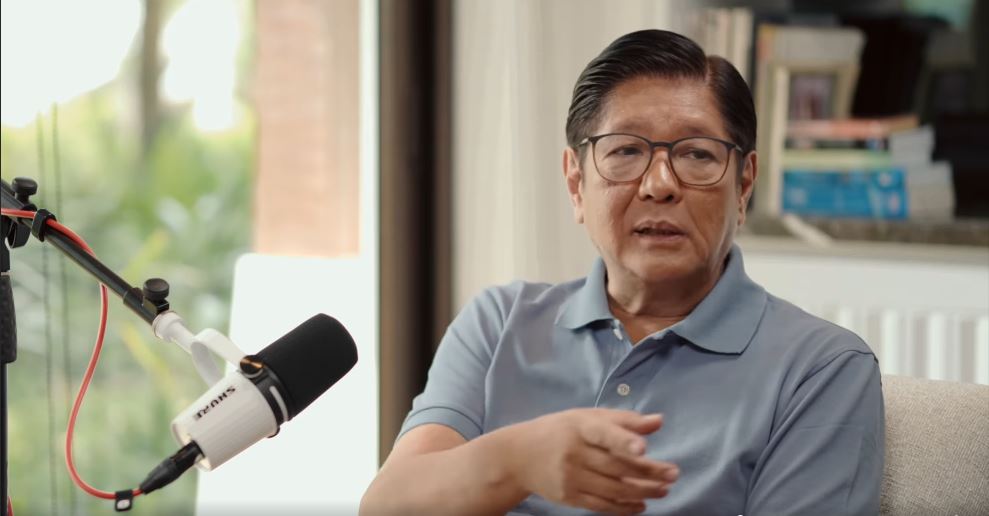Tags
PBBM: P20 rice program sustainable through record domestic production.
By Jerome Carlo Paunan

MANILA, (PIA)—President Ferdinand R. Marcos Jr. defended his administration’s P20 rice program as sustainable without permanent subsidies, citing record-breaking harvests and plans to achieve food security through increased domestic production and farmer support.
During the second episode of the BBM podcast, Marcos expressed confidence the government can maintain affordable rice prices while protecting farmer incomes, rejecting concerns about the long-term viability of the pricing strategy.
“I’m so confident to say it’s sustainable because as long as we continue to provide machinery to farmers, improve all our irrigation, and do research on new varieties and planting techniques, our production side will keep getting better,” the president said.
Marcos revealed the Philippines achieved unprecedented rice production levels in recent years, with each year surpassing the previous record.
“In 2023, we had the largest crop of palay in the history of the Philippines. In 2024, we already surpassed that. In 2025, we predict we will surpass that again,” he said.
The President attributed rising production to concentrated efforts at production sites, arguing that increased output naturally reduces costs and enables lower consumer prices through the National Food Authority’s operations.
“Since our production is already going up, the cost of production goes down. Since the cost of production goes down, when NFA buys and sells, NFA’s selling price keeps going down,” Marcos explained.
Addressing concerns about farmer welfare amid low rice prices, Marcos emphasized the government’s commitment to maintaining fair purchasing prices regardless of market fluctuations.
“It’s very hard to be a farmer. That’s a difficult life, heavy work. You get worn out and age early because you’re farming. We have to support them,” he said.
The President pledged that the National Food Authority (NFA) will never reduce its buying price from farmers, even as consumer prices remain low.
“No matter what happens to the price of rice we sell in markets, we will not lower NFA’s buying price. It will never go down,” Marcos stated.
Currently, the NFA purchases palay from farmers at P17-18 per kilogram, significantly higher than private traders who offer P11-12, incentivizing farmers to sell to the government agency.
The administration plans to expand its Kadiwa ng Pangulo retail outlets, which currently provide P20 rice to consumers, with Marcos announcing potential changes to the funding structure.
“We are in partnership with local government units. Eventually, I’m looking at a proposal that next year there will be no LGU contribution. All contributions will come from the national government,” he said.
The program currently serves 51% of the population through Kadiwa stores, with plans to achieve universal coverage.
“We are providing volumes sufficient for 51% of our population. That’s for now. Hopefully we will bring it up to the point that it’s for all,” Marcos explained.
The sustainability strategy relies heavily on continued investment in agricultural modernization and infrastructure development.
He explained that part of this strategy includes providing modern machinery to farmers; improving irrigation systems nationwide; conducting research at the International Rice Research Institute and University of the Philippines Los Baños; and developing new rice varieties and advanced planting techniques.
Marcos expressed confidence the Philippines can return to its historical status as a rice exporter, citing past achievements as precedent for current goals.
“We did it before already. We exported rice before. So why not do the same thing again?” he said, emphasizing that supporting farmers remains the foundation of food security policy.
The President’s approach centers on the principle that robust domestic production eliminates the need for subsidies while ensuring both affordable consumer prices and fair compensation for agricultural producers.
“It’s really about helping the farmers,” Marcos concluded, positioning farmer welfare as integral to achieving long-term food security and price stability. (JCO/PIA-NCR)
https://pia.gov.ph/pbbm-p20-rice-program-sustainable-through-record-domestic-production/Published Date: June 20, 2025






